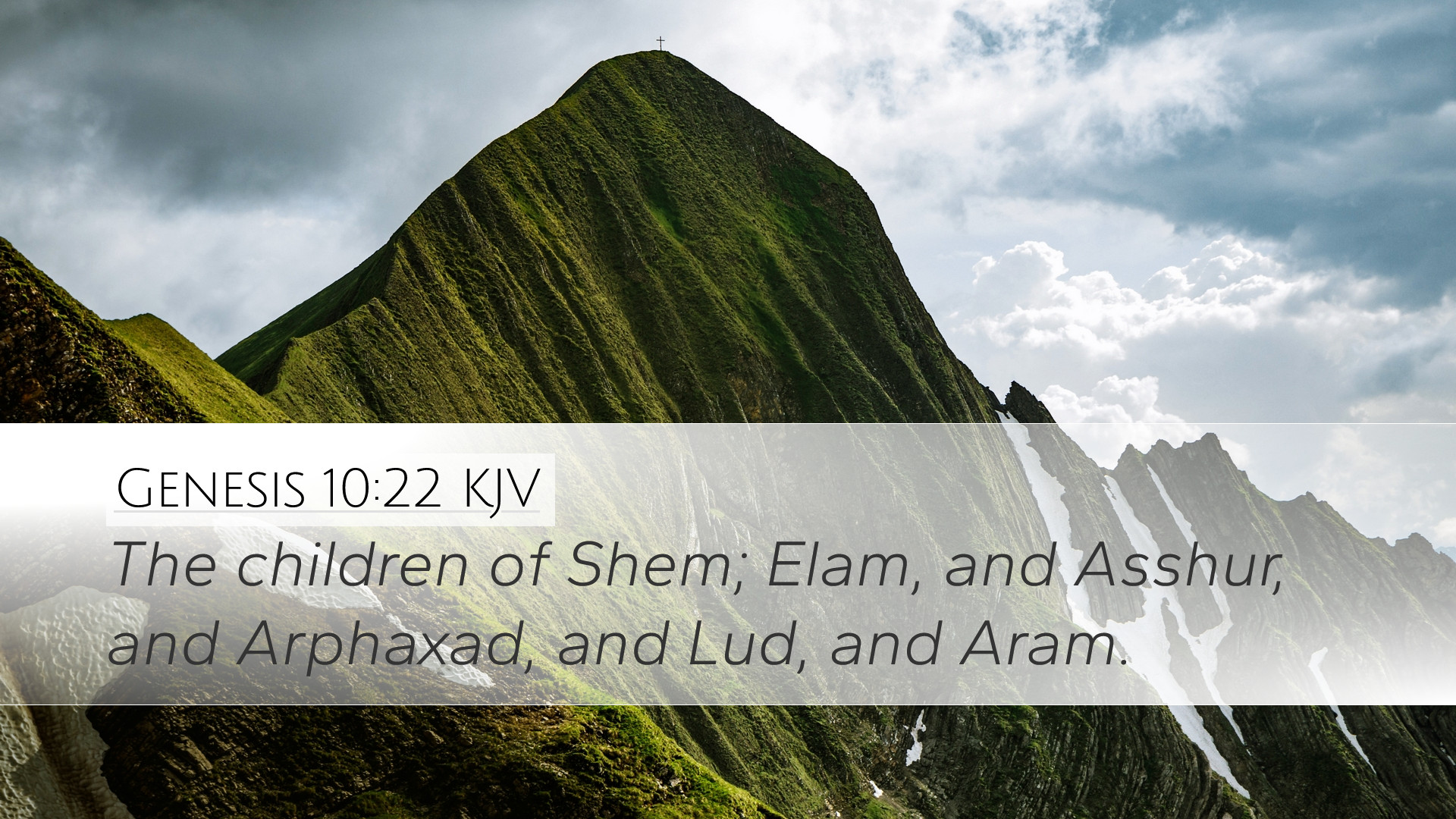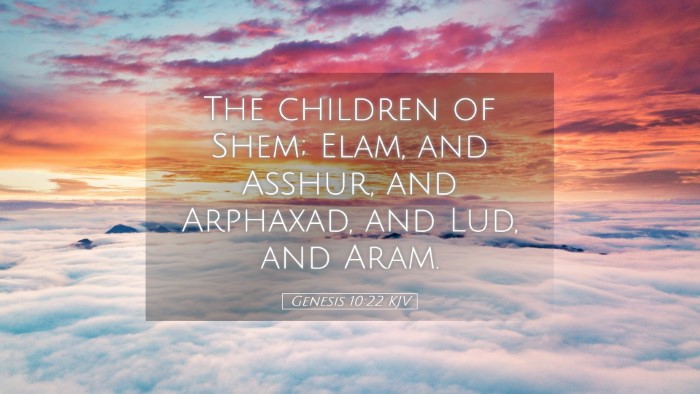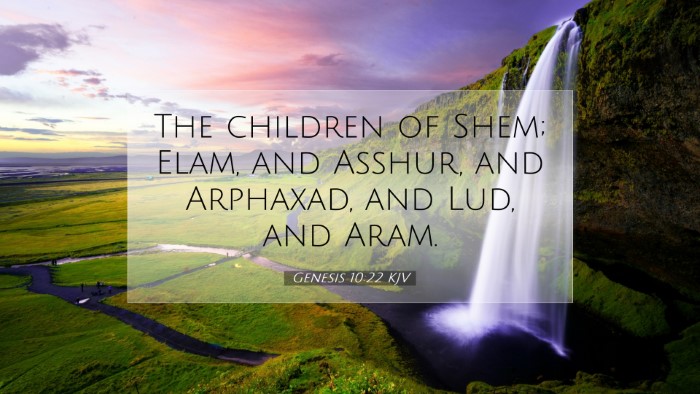Commentary on Genesis 10:22
Verse Context: Genesis 10:22 states, "The children of Shem; Elam, and Asshur, and Arphaxad, and Lud, and Aram." This verse is part of the Table of Nations, which outlines the descendants of Noah's sons after the Flood and provides significant information about the early genealogies and the spread of nations.
Historical Background
Importance of Shem: Shem is one of the three sons of Noah, and through his line comes the Jewish people, as well as important biblical figures such as Abraham. The lineage of Shem is significant as it traces the ancestry of God’s chosen people, leading to the ultimate fulfillment of God's promise through Christ.
Commentary Insights
- Matthew Henry: Henry emphasizes that the lineage of Shem is critical as it leads to the patriarchs and figures instrumental in biblical history. He notes the spiritual implications of Shem's descendants, suggesting that this line was chosen for significant covenant purposes. He highlights Elam as a notable descendants, indicating their geographical prominence in ancient history.
- Albert Barnes: Barnes provides geographical insights, explaining the locations associated with Shem's descendants. He identifies Elam with the ancient Elamites, known for their civilization along the Persian Gulf, and Asshur with the Assyrian Empire. Arphaxad is explained as a significant portion of the genealogy leading down to Abraham. Each name represents not only a family lineage but also contributes to the understanding of ancient civilizations.
- Adam Clarke: Clarke draws attention to the profound theological implications of Shem's descendants, noting that they became the seed from which God's covenant was fulfilled. He mentions the linguistic and cultural diversity emanating from this lineage. In Clarke's view, Genesis 10:22 serves a dual purpose: to document ancestry and to hint at the God's ongoing work through human history.
Key Themes
- Divine Providence: The arrangement of genealogies reflects God’s sovereign plan for humanity. The lineage of Shem underscores God's choice and purpose in preserving a people unto Himself, showing that He works through family lines to fulfill His promises.
- Cultural and Ethnic Diversity: The verse demonstrates the emergence of different cultures and languages from the descendants of Noah. This multiplication of nations is indicative of God’s command to populate the earth, affirming the richness of His creation through varied tribes and peoples.
- Foreshadowing of Redemption: The genealogies serve as a backdrop for the unfolding story of redemption. The line of Shem eventually leads to Christ, the fulfillment of God’s promise to bless all nations through Abraham's seed (Galatians 3:16).
Theological Reflections
Significance of Names: Each name among Shem's descendants represents specific characteristics and historical contexts, inviting theologians to explore the deeper meanings behind biblical names and their implications for redemption history.
Understanding our Heritage: For both pastors and laypersons, Genesis 10:22 invites reflection on our spiritual lineage—recognizing how we are part of a larger narrative of faith that transcends time and culture, fostering unity within the faith community.
Practical Applications
- Encouragement for Cultural Engagement: Genesis 10:22 serves as a reminder for believers to engage with diverse cultures, understanding that each has a place in God’s creation and redemptive plan.
- Building Relationships: Just as Shem’s lineage traces various peoples, churches today are called to nurture relationships across cultures, promoting the Gospel of unity found in Christ.
- Importance of Genealogy: For modern believers, tracing spiritual ancestry can be enriching. Like the Israelites, we are encouraged to know our faith history, recognizing the immense cloud of witnesses that have gone before us.
Conclusion
Genesis 10:22 provides rich material for theological reflection, historical inquiry, and practical application. By understanding the significance of Shem’s descendants, we are encouraged to appreciate our place in God’s redemptive narrative and engage proactively with the world around us, echoing the mission of the church to be a people of every tribe and nation serving under the Lordship of Christ.


